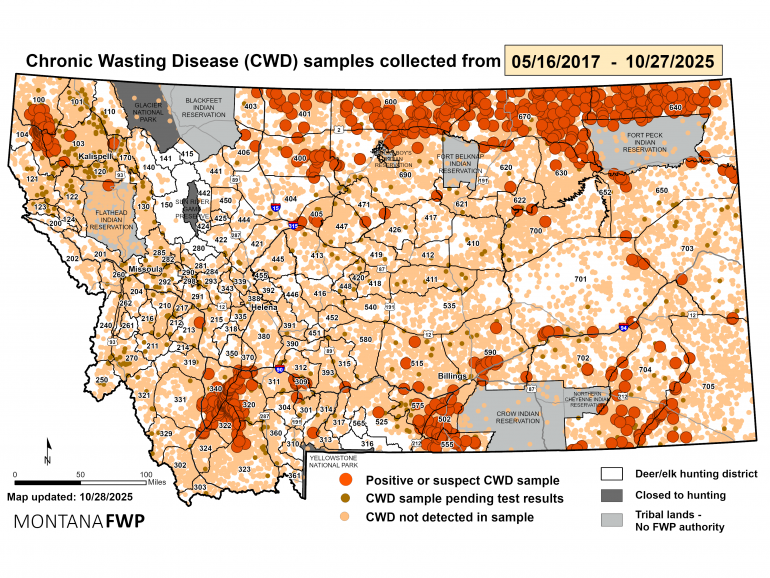Waste Not, Want Not
How you can help manage Chronic Wasting Disease.
The 2023 hunting season marks the seventh year since Montana Fish, Wildlife & Parks (FWP) detected Chronic Wasting Disease (CWD) in Montana, and the fourth year that they’re actively testing for it. As expected, cases have slowly increased, with hotspots occurring in the northern and southern parts of the state.
For those unaware, CWD is a neurological disease transmitted through body fluids such as saliva, urine, and blood. The disease can remain in the environment for long periods of time and is fatal if contracted.
The good news is that FWP will again be paying for testing facilities so that hunters can get their animals tested for free. To test for CWD, bring the head of the animal into one of FWP’s testing sites. Alternatively, you can just bring the lymph nodes, if you know how to extract them. Directions on how to do so can be found at fwp.mt.gov. When handling brain matter, always wear latex gloves and wash your tools thoroughly.
CWD is an ongoing problem with evolving solutions. Biologists want more data to understand how to better manage the disease. So, hunters have a crucial role to play in management solutions—now and into the future. Do your part and get your animals tested, regardless of hunting region or district.
One thing that remains fully in our control is carcass disposal. Either leave it at the kill site (check with the landowner if on private land) or bag the remains and dump it in the landfill. Do not throw it in a roadside ditch, where it will be susceptible to scavenging by wildlife and pets. Not only is this bad form, but it could land you a hefty fine and a suspension of hunting privileges. Have a plan before you go out. Look up the nearest sampling sites, think about how you’ll pack out the animal, and stay in the know with your area’s current CWD activity.
If your animal tests positive, you can acquire a replacement license through FWP, as consuming meat from a CWD-ridden animal is not recommended. While there hasn’t been a documented case in humans yet, we’d hate for you to be the first. For more information, go here.















